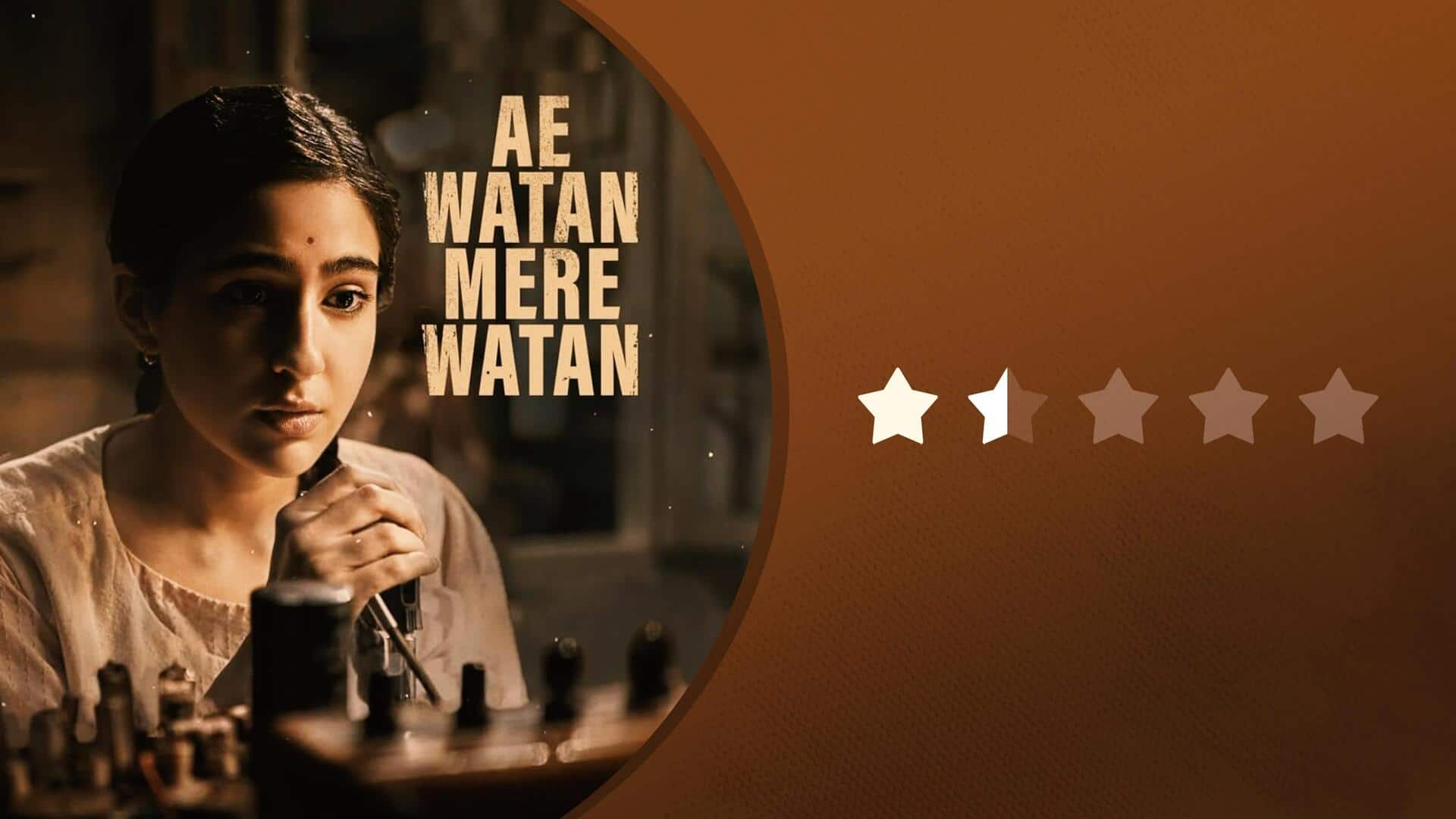
'Ae Watan Mere Watan' review: Meandering film has no ambition
What's the story
A week after starring in the insufferable Murder Mubarak on Netflix, Sara Ali Khan has switched gears to play freedom fighter Usha Mehta in Amazon Prime Video's Ae Watan Mere Watan. Directed by Kannan Iyer, this biographical drama set against the tumultuous period of India's struggle for independence in the 1940s suffers heavily due to its haphazard screenplay and pitiful lack of ambition.
Story
This is what happens in 'AWMW'
Ali Khan essays Mehta, who, along with her college friends, starts Congress Radio while hiding from the watchful eyes of the British Empire. Their path is laced with difficulties and even the slightest mistake can lead to their execution; amidst this, they seek the help of revered freedom fighter Dr. Ram Manohar Lohia (Emraan Hashmi in an extended cameo). Will they succeed?
#1
Great real-life saga, but a bad payoff
Stories built around independence are a dime a dozen in Indian cinema, and that's not a complaint. We can never get enough of these stories, especially when they chart out the lives of unsung heroes that history books never had the time for. Thus, AWMW has an interesting subject, but it terribly fails Mehta, her valiance, and her incredibly inspiring and uplifting story.
#2
Never, not even once, does it draw you in
AWMW's biggest problem is how drab and stilted it is. It runs for over two hours (and thank god for the forward feature on OTT), but it often feels like a repetition of the same sequences. There is no hook, no engaging factor, and there is nothing that will make you keep watching. What a remarkable true story, but such a lifeless execution.
#3
The screenplay doesn't do justice to the real tale
AWMW is crushed under the weight of its meandering screenplay, which isn't entirely clear which scene should succeed which one. Despite knowing that the actors are portraying real characters, your eyes never well up for them, and your heart could care less than a beat for them. Tonal inconsistencies, dialogues that feel more like sermons, and in-the-face metaphors also drive a knife through AWMW.
#4
Ali Khan is not a good choice for central role
Ali Khan is in almost every scene here and one can't help but wonder that she is putting on an "act"—a feeling you should never get while watching any character in any project, the genre notwithstanding. Terribly miscast, she struggles with emotional scenes, and Hashmi and even Sparsh Shrivastava (Laapata Ladies) overpower her everywhere. A perpetually bewildered, confused, exasperated expression rests on her face.
#5
No character development, so, we never connect with anyone
Even though we spend time with the characters, we don't really know them. Hardly anyone's personal life finds space, and an unnecessary love angle only adds to the runtime. The characters could have been better drawn out, the first consequential scene could have had more gravitas, and the film could have mirrored the energy of the fights it portrays. Alas, we return empty-handed.
#6
How is the portrayal of the British characters?
Though the British characters are not thankfully caricatures, don't expect much from their storyline either. All of them are interchangeable and say the same kind of dialogues, and toward the end, when they chase Mehta, the film ties itself up in such terrible knots that there's no coming back from there. Eager about India's freedom struggle? Visit a museum and stay away from AWMW.
Conclusion
Use this time to read a book on Mehta, perhaps
With a different team, perhaps AWMW would have turned out to be a superior project. As it currently stands, however, it is a haphazard portmanteau of scenes with their connective tissue running out of glue. Eventually, a slew of historical facts in the end credits hooked me more than the entire film. A terribly distracted film that devours itself, it gets 1.5/5 stars.